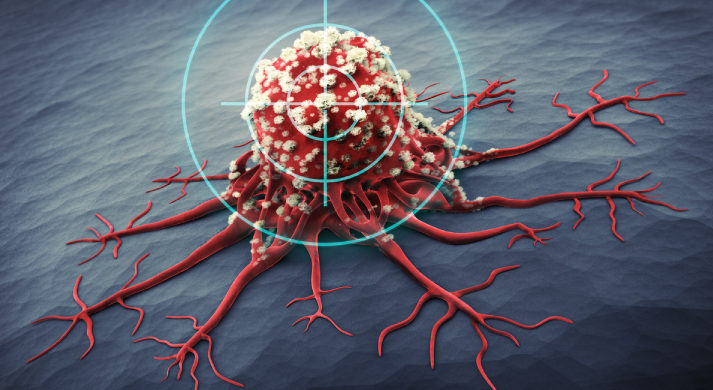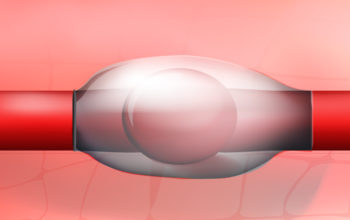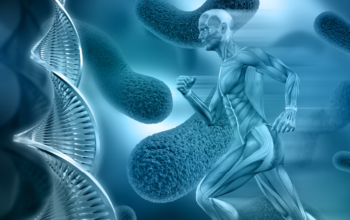
Date: 30th September 2020
The development of innovative cancer therapies for improving treatments is a dynamic and rapidly moving field. Particularly challenging is the design of efficient drug delivery systems and the ability to harness the host’s immune system. Now two teams of scientists have developed therapeutic approaches to address these issues, one using ultrasound-triggered therapeutic microbubbles to enhance the efficacy of cytotoxic drugs and the other generating implantable blood clot scaffolds for enhanced cancer vaccination.
Cancer is among the leading causes of death worldwide. In 2018, there were 18.1 million new cases and 9.5 million cancer-related deaths worldwide. Whilst, traditional therapies such as systemic chemotherapy have proved successful, the side-effects can be severe and for many the cancer becomes or remains refractory. Over the past several years, a new generation of cancer treatment has come to the forefront – targeted cancer therapy.
Therapeutic microbubbles
The first team, led by Louise Coletta and Stephen Evans, based in Leeds, UK, combined a tumour marker targeting strategy and an ultrasound-triggered drug release nanoparticle to selectively deliver a highly toxic drug to tumour cells in mice. The therapeutic microbubbles (thMBs) are micron-sized gas-filled phospholipid-shelled spheres, which were generated using a microfluidic microbubble production platform.
Here the team used VEGFR2-targeted microbubbles which were surrounded by a ‘coat’ of smaller, liposomal drug-payloads. The team used the chemotherapy prodrug irinotecan or its highly toxic metabolite SN38 as payloads. MBs are intra-vascular agents and therefore actively targeting tumour endothelial markers such as VEFGR2, which is upregulated in most solid tumours, was a good strategy for directing therapeutics to the cells of interest. The ultrasound caused oscillations in the thMBs which collapses or ‘pops’ the bubbles releasing the drug into the target tissue.

The team found that the thMBs bound specifically to VEGFR2 in vitro and that in human colorectal cancer xenografts in mice they significantly improved tumour responses to the drugs. Release of the drugs was dependent on the ultrasound trigger, and without it enhanced tumour responses were not seen. Sensitive quantification of drugs and their metabolites showed that thMBs limited exposure in healthy tissues as they were not exposed to the ultrasound and therefore encapsulation of the drug was persistent.
Conclusion and future applications:
The team have shown that thMBs can enhance the efficacy of cytotoxic drugs in vivo by increasing the concentration of encapsulated drug into target tissues but limiting bioavailability and toxicity in healthy tissues. The system was able to achieve significant therapeutic responses with very low doses of cytotoxic drugs. The microfluidic production platform was easy to use and therefore the system offers flexibility such that payloads and target tissues can be changed with ease. Furthermore, the scalability should allow a route to clinical grade production for human trials.
The approach here attractively combines next generation synthetic biology techniques such as nanoparticle delivery, and adds functionality using more traditional technology such as ultrasound. In contrast, the next team of scientists looked to exploit the body’s natural powers combing a biological delivery system to harness host immunity.
Implantable blood clot cancer vaccine
Cancer immunotherapies are becoming a crucial tool in the fight against cancer, and function by harnessing the power of the host’s immune system to control and limit cancer progression. Cancer vaccines aim to generate long-lasting antitumor immunity and stimulating specific immunity against tumours. Now scientists have designed implantable blood clot–based immune niches that enhanced cancer vaccination in mice.
The team led by Chao Wang, based at Soochow University, China, were inspired by the coagulation process, which generates a gel-like material, and attracts and recruits a large number of immune cells. Here the team have developed an implantable natural blood clot scaffold for cancer vaccine delivery by using autologous blood.
To start the team created the therapeutic blood clot vaccine (BCV) by mixing mouse blood with immunomodulating agents and then formed the clot using a vacuum treatment. The clots were then use to encapsulate tumour-associated antigens, chemokines and adjuvants and implanted into several tumour models in mice.

The BCV combined with immune checkpoint blockade effectively inhibited tumour growth in these models. It induced a potent immune-memory effects, which could protect treated mice from cancer relapse. The clots attracted and recruited various types of immune cells, including macrophage, dendritic cells, B cells, T cells, and natural killer cells, forming an immune niche with a rich variety and abundant immune cells.
Conclusions and future applications
The team have demonstrated that BCVs offer an immune niche for enhanced cancer vaccinations. By encapsulating immunomodulators and antigens into the clot, the niche was able to recruit immune cells and stimulate tumour-specific adaptive immunity.
The system was easy to manufacture, was biocompatible, and efficient such that it’s translation into the clinic warrants further investigation. BVC also offered high flexibility, such that changing, optimising and combining the encapsulated molecules could provide potent personalised cancer immunotherapies.
Summary
Both sets of work here highlight the plethora of next generation tools that are now becoming available to treat cancer. We have recently reported cancer-busting living biotherapeutics, nanoparticles able to delivery CRISPR machinery to edit cancerous cells, the hope of a universal ‘go-to’ cancer therapy, and the discovery of an off-switch for aggressive cancer. The addition of therapeutic microbubbles and BCV as delivery systems should add to the advancement of more efficient therapies that will improve patient outcomes.
Ingram, N., L. E. McVeigh, R. H. Abou-Saleh, J. Maynard, S. A. Peyman, J. R. McLaughlan, M. Fairclough, G. Marston, E. M. A. Valleley, J. L. Jimenez-Macias, A. Charalambous, W. Townley, M. Haddrick, A. Wierzbicki, A. Wright, M. Volpato, P. B. Simpson, D. E. Treanor, N. H. Thomson, P. M. Loadman, R. J. Bushby, B. R. G. Johnson, P. F. Jones, J. A. Evans, S. Freear, A. F. Markham, S. D. Evans and P. L. Coletta (2020). “Ultrasound-triggered therapeutic microbubbles enhance the efficacy of cytotoxic drugs by increasing circulation and tumor drug accumulation and limiting bioavailability and toxicity in normal tissues.” Theranostics 10(24): 10973-10992.
https://doi.org/10.7150/thno.49670
Fan, Q., Q. Ma, J. Bai, J. Xu, Z. Fei, Z. Dong, A. Maruyama, K. W. Leong, Z. Liu and C. Wang (2020). “An implantable blood clot–based immune niche for enhanced cancer vaccination.” Science Advances 6(39): eabb4639.
https://doi.org/10.1126/sciadv.abb4639


